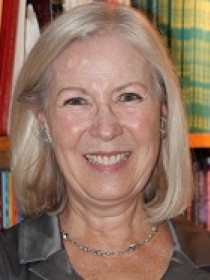Connect with Karen
About Karen
Beckwith’s work focuses on gender and politics in the US and West Europe, including women and elections, political parties and participation, and social movements. Beckwith's research concerns how citizens participate in politics through social movement activism, and engagement with political parties and interest groups. Beckwith is particularly interested in how political institutions shape political opportunities and disadvantages along gender lines, and how women – and men – mobilize to assert their policy preferences. Beckwith's most recent work concerns the gendered processes of party leadership selection in parliamentary systems and how gender, race, and ethnicity shape cabinet formation in the US and West Europe.
Contributions
The Rocky Road to the White House for American Women
Basic Facts Brief,
The Widening Partisan Gender Gap in the U.S. Congress
Basic Facts Brief,
In the News
"Spain's Majority-Female Cabinet Embodies Women's Global Rise to Power," Karen Beckwith (with ), The Conversation, July 13, 2018.
"There are Three Rules of Cabinet Appointments. Will Donald Trump Break Them?," Karen Beckwith (with ), The Washington Post, November 25, 2016.
"Why Bernie Sanders' Supporters Should be Good Losers," Karen Beckwith, The Conversation, August 1, 2016.
"A Presidential Cabinet That Looks Like America Would Not be Hard to Achieve," Karen Beckwith, Cleveland.com, May 11, 2016.
"What is ‘Merit’ Anyway? On Using Gender Quotas in Cabinet Appointments," Karen Beckwith (with ), PSA Women and Politics Blog, November 5, 2015.
Karen Beckwith's research on the partisan imbalance in elected women discussed by , "Can the GOP Fix Its Woman Problem in Time to Fight Clinton?," The Atlantic, August 16, 2013.
Guest to discuss Hillary Clinton's career on KCRW's "To the Point", Karen Beckwith, January 3, 2013.
"Many Ohioans Have Already Voted," Karen Beckwith, Room for Debate, New York Times, October 25, 2012.
Guest to discuss the effectiveness of campaign ads on WCPN's "The Sound of Ideas", Karen Beckwith, October 22, 2012.
Karen Beckwith's research on female voters and voter turnout discussed by , "Female Factor: Candidates Campaign on Women's Issues in Fight for Votes," The Ledger's "Politics in Polk", September 25, 2012.
Guest to discuss the Ohio primary elections on WCPN's "The Sound of Ideas", Karen Beckwith, March 7, 2012.
"Political Women, American Democracy, and the 2012 Elections," Karen Beckwith, Interview with C-SPAN Digital Bus reporting staff, C-SPAN, September 29, 2011.
Publications
"Political Women and American Democracy" (with ) (Cambridge University Press, 2008).
Provides a detailed, cross-time analysis of US women’s involvement in American democracy, with twelve chapters on women as citizens, voters, participants, movement activists, partisans, candidates and legislators.
"Between Participation and Representation: Political Women and Democracy in the United States" in Political Women and American Democracy: Critical Perspectives on Women and Politics Research, edited by Christina Wolbrecht, Karen Beckwith, and Lisa Baldez (Cambridge University Press, 2008), 181-198.
Compares the participation of women as citizens with their representation in elective office and offers explanations for the discrepancy.
"Numbers and Newness: The Descriptive and Substantive Representation of Women" Canadian Journal of Political Science 40, no. 1 (2007): 27-49.
Examines the relationship between the numbers of women elected to national legislatures and their impact, upon coming into office, on developing public policies for women.
"The Gendering Ways of States: Women’s Representation and State Transformations in France, Great Britain and the United States" in Women’s Movements Facing the Reconfigured State, edited by Lee Ann Banaszak, Karen Beckwith and Dieter Rucht (Cambridge University Press, 2003), 169-202.
Explains the reasons that women’s access to national legislatures varies across countries and the role of women’s movements in supporting female candidates for office.
